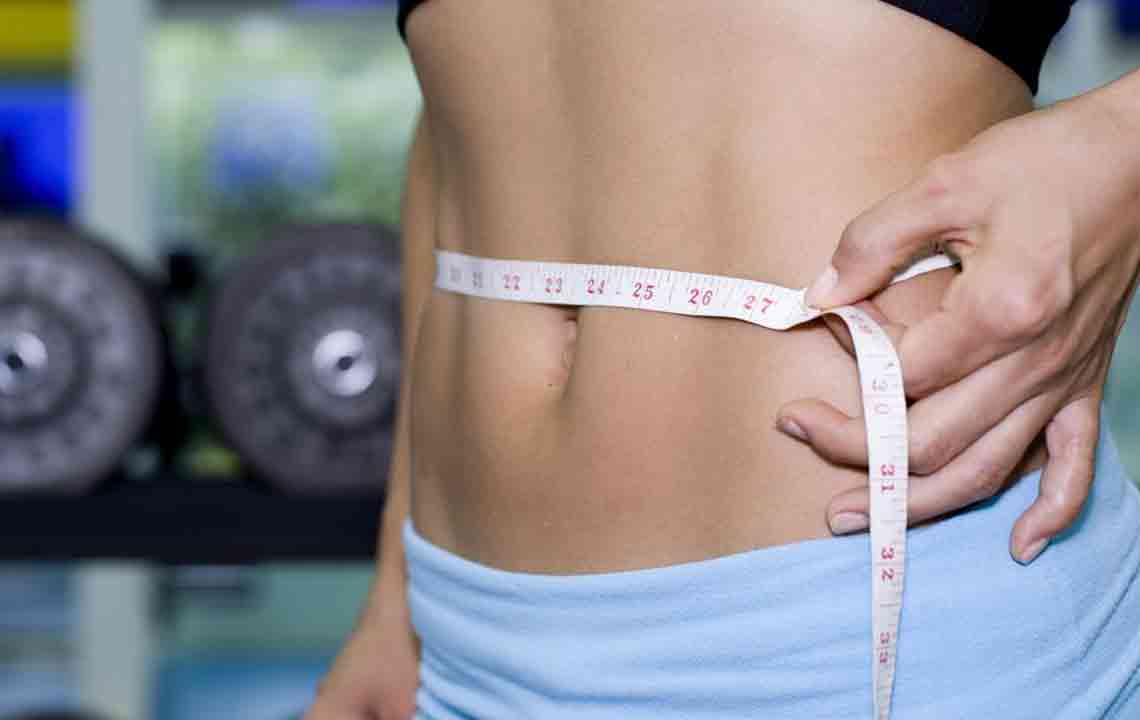How To Lose Belly Flab Quickly With These Methods
Belly flab can be a problem, not just because of how it makes you look, but also because of its impact on your health.
Excess belly flab poses potential risks of heart disease and type-2 diabetes. The excess fat in the belly is called visceral fat. This is the fat that is stored in organs in the abdomen. Studies have shown that visceral fat is, in fact, more harmful than other forms of fat such as subcutaneous fat.

Here are a few ways that provide a solution on how to lose belly flab.
Exercise
A regular schedule for exercise is the key to deal with your belly fat problem; it effectively acts on the visceral fat.
Exercise for at least half an hour each day. Even brisk walking and jogging helps. Proper work out regimes including treadmill runs and stationary bikes, and crunches and squats. You should focus, in particular, on the cardio part of the routine. You can play soccer, go swimming, join Zumba classes or join a sport. Make sure you stick to your workout schedule.
Changes In Your Diet
While there is no particular diet for belly fat, you start losing it when you start losing weight.
Foods High In Fibre
It has been seen that including more fiber in your diet slows down the accumulation of visceral fat. Have at least ten grams of fiber every day. Foods such as apples, legumes, avocados, flax seeds, Brussel sprouts and black berries are rich in fiber.
Fish
Certain fishes, especially fatty fish, are rich in Omega-3s fatty acids, which have anti-inflammatory properties. Besides protecting you from a variety of ailments such as heart disease and gout, these can also help decrease the amount of visceral fat. You can have, for instance, salmon, trout, mackerel, and sardines.
Probiotics
There are certain types of bacteria which help maintain a healthy gut. The absence of these may also have an impact on your immune system. In fact, certain bacteria, such as some from the Lactobacillus family, also aid in weight loss and help reduce belly flab. You can have probiotic supplements containing these strains of bacteria.
Proteins
A protein intensive diet may help cut down on belly flab in the long run. A high intake of protein helps reduce your appetite and helps you feel full. It also enhances the rate of your metabolism.
Limit Alcohol
Limit the amount of alcohol you consume.
While some types of alcohol such as red wine are even beneficial in moderation (as it helps combat heart disease), studies have shown that excess alcohol leads to a buildup of fat, particularly around the waistline. It has been shown to reduce the rate at which fat is burnt in the body, hence leading to an accumulation of fat.
Limit Your Sugar Intake
An excess of sugar, and hence, fructose, may exacerbate and be a risk to heart disease, obesity, and type-2 diabetes. The increased intake of sugar also leads to more fat in the abdominal region.
Avoid desserts and other sweet products. Even organic, natural sources of sugar such as honey should be limited. Often, we tend to consume more sugar than we realize through sodas, soft drinks, and sweetened beverages. Even fruit juice is high in fructose and should be consumed in limited amounts. Studies have shown that even the rate of metabolism and the rate at which fat burns may slow down due to increased intake of sugar and thus fructose.
Avoid Refined Carbohydrates
Avoiding refined carbohydrates helps you lose fat and thus belly fat as well. To lose weight fast, limit your carbohydrate intake to less than fifty grams daily. Foods such as pasta, white rice, white bread and most baked products are refined carbohydrates.
Changes In Your Sleep Habits
It is important to get sufficient sleep. This too helps you lose fat. Try to get at least seven hours of sleep every day. Try to have a quality sleep without disturbances or lasting fatigue in the morning.
Reduce Stress
Increased levels of stress trigger the production of cortisol. This is a hormone that helps the body respond to stress but also leads to the accumulation of fat when produced in large amounts. Increased levels of cortisol enhance your appetite and lead to more fat being stored in the abdomen. Also, for women already having excess belly fat, more cortisol is produced in case of stress. This leads to more accumulation of fat around the waist.
Some lifestyle changes are required to combat belly flab. Besides helping keep abdominal fat in check, a healthy diet and lifestyle come with other benefits as well. With the right diet and regular exercise, keeping stress in check and getting quality sleep, losing belly flab becomes quite doable.




